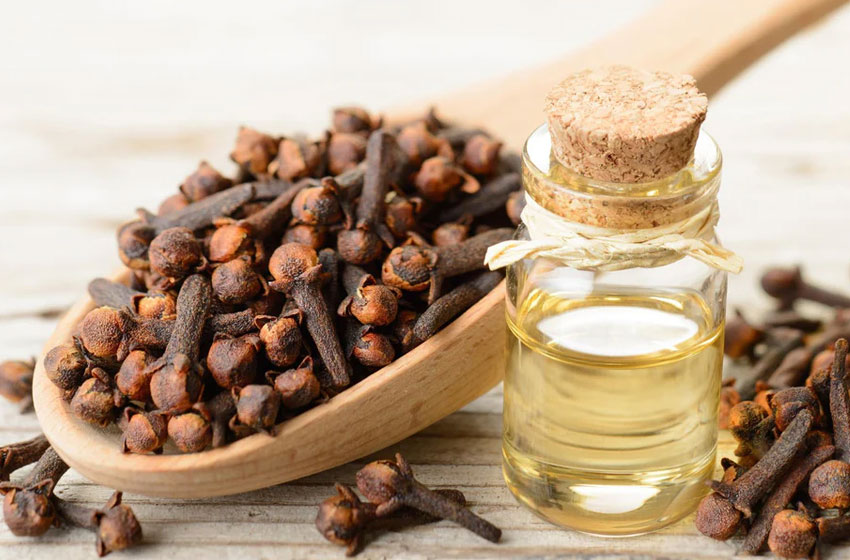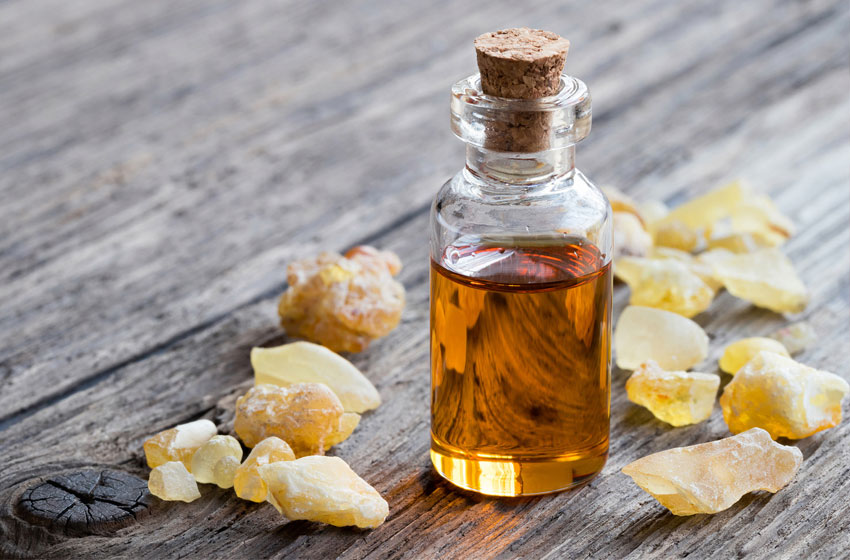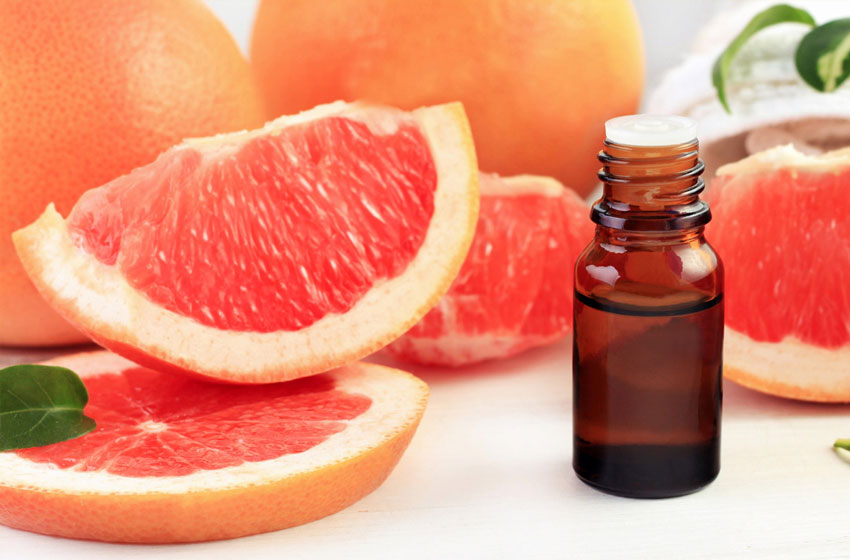10 Essential Oils with Amazing Health Benefits

You are exhausted as you had a long day at work, so when you arrive home, you expect to take some rest and just relax. But you can’t help your mind wander off to unfinished tasks, something your colleague or boss told you. So, the constant ruminating and stress make it difficult for you to get some sleep; soon, you find yourself angry, irritated and disturbed.
Is there a solution to this problem? Well, first of all, you need to take things one at a time and recalibrate your state of mind, and one of the best ways to do that is through essential oils. Essential oils are bottled plant extracts that are made by steaming or pressing plants to trap the compounds responsible for their fragrance.
Why are essential oils beneficial for health?
When we breathe in essential oils, the scent molecules travel from the olfactory nerves to the brain and interact with the limbic system that regulates emotions, memories, and sensations. Furthermore, the scent molecules can also be absorbed into the bloodstream when applied to the skin. Once in the bloodstream, essential oils distribute throughout the body to potentially enhance different aspects of overall health.
Therefore, essential oils can reduce many health issues, including stress, insomnia, pain and nausea. However, one must be careful and not get swayed by marketing tactics that claim essential oils can cure anything. Instead, it is better to consider them a helpful addition to a healthy lifestyle. Hence, the top most beneficial essential oils are as follows:
Lavender

Since ancient times, lavender has been used to reduce symptoms and support multiple conditions. Modern science has confirmed many of its health benefits, while others are still under investigation. Previously, lavender was recommended for people with insomnia or other sleep disorders. Besides, people stuffed their pillows with lavender flowers to help them fall asleep and rest better.
Research suggests that breathing in lavender’s aroma could improve sleep quality. A systematic review of 15 studies from 2014 found that inhaling essential oils, including lavender, had positive effects on people with mild sleep disturbances. In addition, numerous smaller studies have found additional benefits of lavender for sleep issues.
In addition, it also proved to be beneficial for people suffering from anxiety; for instance, a large meta-analysis from 2019 highlighted that people with anxiety disorders who took 160-milligram lavender oil capsules experienced significant decreases in anxiety.
Tea Tree Oil

Tea tree oil is an essential oil extracted from Australian tea tree leaves; it is also known as melaleuca oil which has antiseptic, antibacterial, and anti-inflammatory properties. Besides, people can use it for hair, skin, and nails as a natural treatment. Furthermore, it is essential in many skincare products, including cleansers, toners, body washes, gels, lotions, etc. Its acne-fighting properties help to reduce acne and enhance overall skin health.
However, it is vital never to ingest it as it can cause a harmful reaction; hence, experts suggest using it topically. The correct way of using the essential oil includes diluting it in a carrier oil such as a witch hazel toner or moisturiser. You can use tea tree oil in the morning or at night.
Combine tea tree oil with a witch hazel toner if you have acne, which can be done after cleansing your skin, or combine the oil with a moisturiser (such as coconut oil) as a last step in your evening skincare routine if you also have dry or sensitive skin.
People with acne-prone skin apply a product containing tea tree oil once or twice a day, focusing on pimple trouble zones like the chin or T-zone. You can apply this product in the morning, at night, or both, but choose a time when you’re most likely to apply it consistently.
Lemon Essential Oil

Extracted from the peel of fresh lemons, lemon essential oils are a natural ingredient that serves as a home health remedy. Lemon essential oils can be diluted and applied topically to your skin, diffused into the air and inhaled. Some people swear by lemon essential oil as an ingredient that fights exhaustion, helps with depression, clears skin, kills harmful viruses and bacteria, and reduces inflammation.
Moreover, it is a beneficial ingredient for women during early pregnancy when they experience nausea and vomiting. So, essential oil can relieve or at least decrease the severity of these symptoms. On the other hand, a recent study indicated that it is effective against bacteria like Staphylococcus aureus and E. coli, making it a good choice for topically cleaning small wounds.
Furthermore, it also has protective properties, such as antioxidants, that may brighten and preserve your skin tone. However, like most citrus oils, it can cause skin sensitivity when in the sun. Also, If you have a cold or are experiencing a sore throat, the lemon essential oil is a good home remedy to try.
So, you can try setting up a diffuser with lemon oil to release its sweet, citrusy scent in your room while you get some rest. The calming properties of lemon oil can help relax both your mind and the muscles in your throat.
Peppermint Essential Oil

Peppermint is an aromatic herb in the mint family; it is a hybrid mint between spearmint and watermint naturally found in North America and Europe. Besides, you might have experienced its sharp smell with a cool and refreshing taste.
Peppermint Oil has numerous health benefits. It is available as a pure essential oil and in the form of capsules and tablets. With a relevant dilution, Peppermint Oil can be taken orally as a dietary supplement and to treat various health conditions or applied topically as a skincare cream/ointment.
The essential oil is known for its antispasmodic and anti-inflammatory properties. It also acts as an expectorant. This property of Peppermint Oil is due to the presence of Menthol, which helps to clear the respiratory tract and give instant relief from nasal and chest congestion. Therefore this oil is mostly used in cold rubs and balms.
Also, it is a good remedy to cure nausea because it has a relaxing and soothing effect. In addition, Peppermint Oil gives instant relief from nausea and headaches due to its anti-inflammatory property and cooling effect.
Additionally, it helps the muscles of the gastrointestinal tract to relax. It stimulates the flow of bile, which facilitates the process of the breakdown of fat and allows the food to pass through the gut easily. Consequently, it helps in acid reflux and has a cooling effect on the stomach. This oil also provides relief from heartburn.
Rosemary Essential Oil

Rosemary is popularly known as the culinary herb which belongs to the mint family, and people have used it for traditional medicines for centuries. It has a distinctive woodsy fragrance and is a staple ingredient in aromatherapy; it has various uses, including treating ailments and pains to promoting hair growth.
Rosemary oil treats many gastrointestinal complaints, including gas, stomach cramping, bloating and constipation. Furthermore, it helps to regulate the appetite and the creation of bile, which is integral to digestion.
So, to treat stomach ailments, combine one teaspoon of carrier oil such as coconut or almond oil with five drops of rosemary oil and gently massage the mixture over your abdomen. Applying rosemary oil in this way on a regular basis detoxifies the liver and promotes gallbladder health.
Similarly, you can use it to lower your cortisol levels ( stress hormone).
To create an anti-stress aromatherapy spray, combine six tablespoons of water in a small spray bottle with two tablespoons of vodka, and add ten drops of rosemary oil. Use this spray at night on your pillow to relax, or spray it into the air indoors any time to relieve stress.
Eucalyptus Essential Oil

Eucalyptus oil is an essential oil derived from the oval-shaped leaves of eucalyptus trees, originally native to Australia. Manufacturers extract oil from eucalyptus leaves by drying, crushing, and distilling them. More than a dozen species of eucalyptus trees are used to create essential oils, each offering its unique blend of natural compounds and therapeutic benefits. While eucalyptus oil’s evergreen scent and much of its medicinal effects are primarily thanks to a compound called eucalyptol (a.k.a. cineole), eucalyptus oil is packed with numerous natural compounds that work in synergy to produce a variety of health-promoting effects.
Furthermore, eucalyptus oil is helpful when you have a cough and cold; this is because eucalyptol seems to work as a natural decongestant and cough suppressant by helping your body break down mucus and phlegm and opening up your airways. Besides, to create a soothing home remedy, add a few drops of eucalyptus oil to a bowl of hot water and breathe in the steam.
Clove Essential Oil

Clove is a popular spice used in cuisines around the world, but when used in the form of essential oil, it provides a number of health benefits. Besides, cloves’ anti-microbial, anti-fungal, antiviral and antiseptic properties make them an excellent home remedy for various ailments. A rich source of antioxidants, cloves can be used to address the most common skin, hair and health problems.
One of the most common benefits of cloves is their ability to numb toothache. Furthermore, It works to reduce skin sagging and the appearance of fine lines and wrinkles. Applying clove oil improves blood circulation, giving skin a youthful and radiant look. Mix a few drops of clove oil in your serum or moisturiser and apply it on cleansed skin at night before going to bed for the best results.
Also, it helps to fade dark spots and blemishes left behind by acne and pimples. Additionally, it has mild exfoliating properties that remove dead skin cells and ensure an even skin tone. Mix a few drops of clove essential oil with a carrier oil and massage it onto your face in circular motions.
Chamomile Essential Oil

The oil of Chamomile is obtained from the chamomile plant, a member of the Asteraceae family. The plant is native to Europe but can now be found in other parts of the world. Chamomile oil is steam distilled from the plant’s flowers. This essential oil has a sweet, straw-like smell and is pale yellow.
It has been used for centuries and is one of the most ancient medicinal herbs known for its therapeutic properties. Chamomile oil has a sweet, floral aroma and is light yellow. It’s extracted from the chamomile plant-specifically, the plant’s flower heads-and is used as a natural remedy for its many potential health benefits.
Chamomile oil has anti-inflammatory properties that can help to reduce swelling and redness in the skin. It is also effective in treating acne, eczema and other skin conditions. Chamomile oil also treats digestive problems such as indigestion, heartburn and diarrhea. It can also help to relieve anxiety and stress.
Frankincense Essential Oil

Frankincense is known as the king of essential oils and has many remarkable uses and benefits; its topical application helps to beautify and rejuvenate skin and promote cellular health and immunity.
For instance, its chemical components result in a potent aroma that can help to dispel negative feelings—like stress. So if you feel like life’s pressures are weighing down your mood, apply Frankincense to the bottom of your feet. The soothing sensation and aroma will promote feelings of relaxation and a balanced mood.
Grapefruit Essential Oil

Grapefruit oil is known for its pleasant and spirited aroma, which many people find uplifting. The main chemical constituent of grapefruit oil is limonene, a monoterpene common to citrus oils and which has demonstrated a host of purifying properties and antioxidant activity in controlled laboratory studies.
Limonene is believed to play a prominent role in the mood enhancement effects often attributed to these oils in aromatherapy practices. Other prominent terpenes isolated from grapefruit oil include myrcene, pinene, and sabinene, which have similarly demonstrated purifying properties and antioxidant activity in controlled laboratory studies involving cell and animal models. In addition, these chemical constituents give Grapefruit oil its reputation as a detoxifier when used in aromatherapy baths and massages.
In addition to its beneficial impact on mood, Grapefruit oil has demonstrated aromatherapeutic activity as an appetite suppressant and sympathetic nervous system stimulant in animal models, which may have implications for weight loss efforts. It has also shown promise as a complementary element in treatments to help improve feelings of anxiety.





